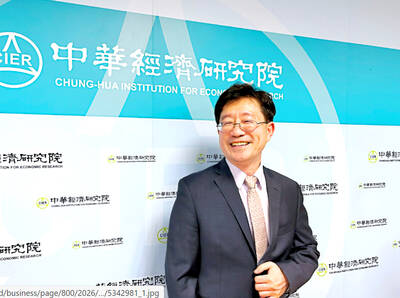Police yesterday announced they had shut down a cross-strait prostitution ring and arrested the alleged ringleaders.
Police said the group took advantage of loopholes in cross-strait exchange laws by bringing in Chinese women as “cultural entertainment performers” and trafficking them for sex.
Under the coordination of the National Immigration Agency (NIA), law enforcement officers with search warrants issued by the Taipei District Court apprehended 13 suspects and three Chinese women in raids in Taipei, New Taipei City and Taoyuan on Thursday.
NIA officials said the widening investigation is being handled by the Taipei District Prosecutors’ Office.
The two main suspects, a man surnamed Chu (朱) and a man surnamed Kuo (郭), allegedly forged documents, confiscated the women’s passports and used other means to exploit the women for use as sex workers.
Prosecutors said the suspects would likely be indicted on human trafficking charges, offenses against social morality, contravening laws governing the cross-strait relationship and violating the Organized Crime Prevention Act (組織犯罪條例).
NIA officials said the group allegedly fabricated documents, such as proof of employment, government certificates and qualifications, to bring in young Chinese women as performers in troupes to tour Taiwan.
Law enforcement agencies caught wind of them last year, and through surveillance, they said they found the suspects had brought 82 Chinese women under six separate “tour groups” for entry into Taiwan in the past six months, each of whom was granted a three-month visitor’s visa.
Earlier last week, the NIA broke up another alleged cross-strait prostitution ring, arresting two Taiwanese suspects surnamed Wang (王) and Huang (黃) in China through cross-strait collaboration.
The suspects allegedly took advantage of loopholes in regulations in the government’s “open door” policy for Chinese tourists, bringing in young Chinese women on the pretext of independent travel in Taiwan to obtain short-term tourist visas and trafficking them in the sex trade.

The Grand Hotel Taipei on Saturday confirmed that its information system had been illegally accessed and expressed its deepest apologies for the concern it has caused its customers, adding that the issue is being investigated by the Ministry of Justice Investigation Bureau. The hotel said that on Tuesday last week, it had discovered an external illegal intrusion into its information system. An initial digital forensic investigation confirmed that parts of the system had been accessed, it said, adding that the possibility that some customer data were stolen and leaked could not be ruled out. The actual scope and content of the affected data

DO THEY BITE IT? Cats have better memories than people might think, but their motivation is based entirely around the chance of getting fed Cats can remember the identity of the people who fed them the day before, Taipei-based veterinarians said on Friday, debunking a popular myth that cats have a short memory. If a stray does not recognize the person who fed them the previous day, it is likely because they are not carrying food and the cat has no reason to recognize them, said Wu Chou Animal Hospital head Chen Chen-huan (陳震寰). “When cats come to a human bearing food, it is coming for the food, not the person,” he said. “The food is the key.” Since the cat’s attention is on the food, it

‘LIKE-MINDED PARTNER’: Tako van Popta said it would be inappropriate to delay signing the deal with Taiwan because of China, adding he would promote the issue Canadian senators have stressed Taiwan’s importance for international trade and expressed enthusiasm for ensuring the Taiwan-Canada trade cooperation framework agreement is implemented this year. Representative to Canada Harry Tseng (曾厚仁) in an interview with the Central News Agency (CNA) said he was increasingly uneasy about Ottawa’s delays in signing the agreement, especially as Ottawa has warmed toward Beijing. There are “no negotiations left. Not only [is it] initialed, we have three versions of the text ready: English, French and Mandarin,” Tseng said. “That tells you how close we are to the final signature.” Tseng said that he hoped Canadian Prime Minister Mark Carney

Taiwan must act to preempt potential Section 301 investigations as US President Donald Trump moves to a new tariff strategy, following a US Supreme Court ruling that voided tariff measures, an academic said yesterday. Countries running the largest trade surpluses with the US face a growing likelihood of Section 301 investigations, Chung-Hua Institution for Economic Research president Lien Hsien-ming (連賢明) said. Section 301 refers to a provision of the Trade Act of 1974 that allows Washington to impose retaliatory tariffs over perceived unfair trade practices, including the running of large trade surpluses. Because Taiwan has become the fourth-largest source of the US’ trade